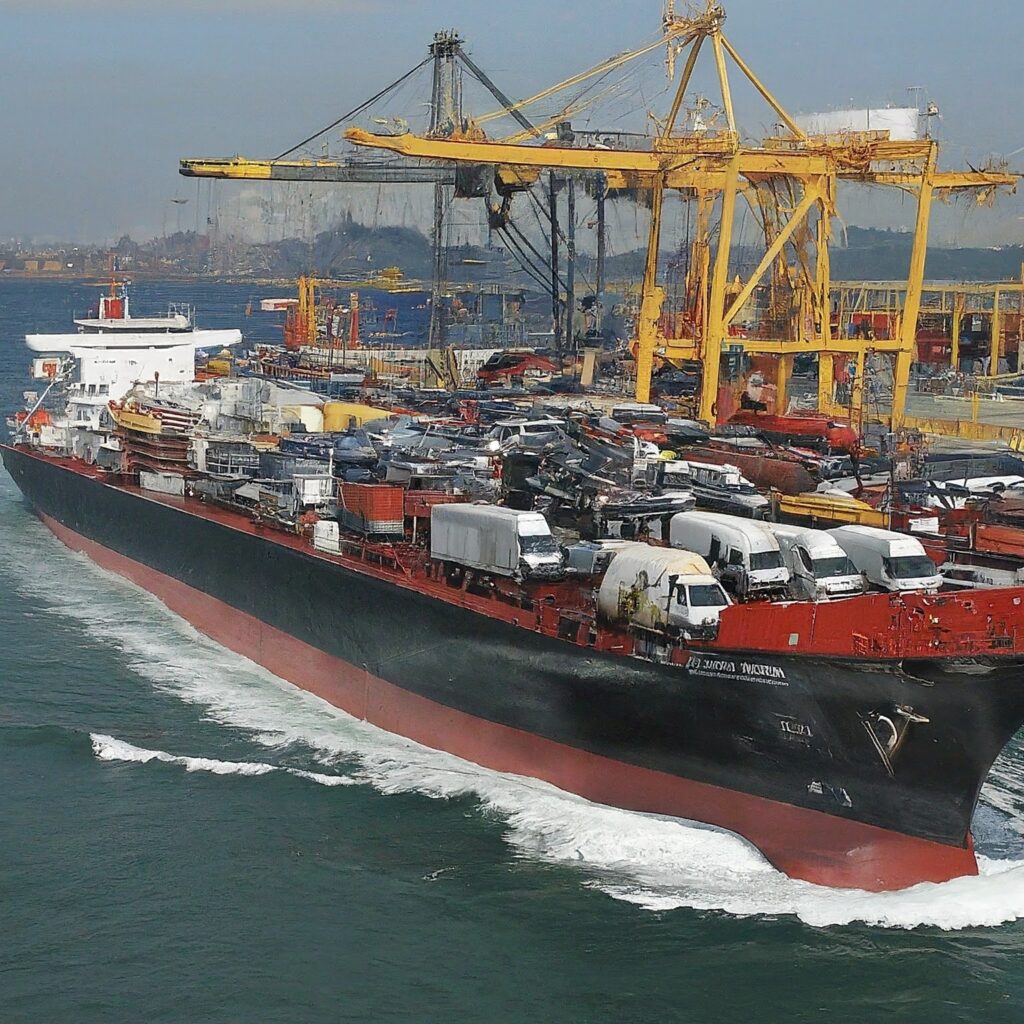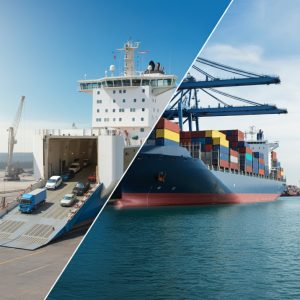International Car Shipping Made Easy: 5 Powerful, Stress-Free Things You Need to Know

This post will teach you the five most important things you should know when car shipping internationally, which include price, shipping methods, paperwork, customs charges, and selecting the best agency.
When trying to ship a car internationally, confusion arises during documentation, customs duties, shipping costs, getting the right agent, delivery, and other related issues. Not to worry, Prraelogistics can make the journey a smooth and easy experience for you. With us, you don’t have to waste money or time trying to ship a car anymore. In this guide, you’ll gain clarity on how to ship a car internationally easily and with confidence. By the conclusion, you will have the knowledge and assurance necessary to export your car abroad without incident, whether it is to Ghana, Nigeria, the UK, or somewhere else.
What Is International Car Shipping All About?
International car shipping is the process of transporting vehicles from one country to another using specialized shipping methods, typically by sea, air, or land. This service is used by people relocating to another country, car dealers buying vehicles abroad, individuals importing cars for personal use, and businesses needing fleet vehicles overseas.
The process involves choosing a delivery service, choosing a shipping method, and doing proper documentation for a smooth delivery. In this section we will group the countries into Nigeria (developing countries) and the United States of America (developed countries).
International Car Shipping to Nigeria
When shipping a car internationally, certain countries have specific requirements and challenges you should be aware of.
Shipping a car to Nigeria, which is one of the most popular destinations for car imports, can be a complex process if you’re unfamiliar with local regulations. Key points to consider include:
- Customs Duties and Taxes: Import duties in Nigeria typically range between 30% and 70% of the car’s value, depending on age and type.
- Accepted Vehicles: Nigeria has restrictions on the age of cars that can be imported. Vehicles older than 15 years may not be accepted.
- Ports of Entry: In Nigeria, Apapa and Tincan Island ports, both in Lagos State, are the primary ports for car imports.
- Inspection and Clearance: Be prepared for vehicle inspections and ensure all required documentation (bill of lading, import permit, proof of ownership) is accurate and complete.
International Car Shipping to United States of America
Importing a vehicle into the United States has its own set of regulations, such as:
- Compliance with U.S. Standards: Vehicles must meet Environmental Protection Agency (EPA) and Department of Transportation (DOT) standards. Noncompliant vehicles might need modifications before they’re allowed in.
- Import Duties: Cars manufactured in North America may enter duty-free under certain agreements, but others usually attract a duty of 2.5%.
- Ports of Entry: Popular entry ports include Los Angeles, Miami, and New York/New Jersey.
- Documentation: You’ll need a bill of lading, foreign registration, proof of ownership, and EPA/DOT compliance documents.
Understanding these requirements will save you time and ensure your shipment clears customs smoothly.
To ship a car internationally with ease, here are five essential things you need to know:
Understanding International Car Shipping Costs
One of the first questions most people ask is, “How much does it cost to ship a car internationally?”
The answer depends on several factors, but having a clear understanding of what drives the price will help you plan effectively. The cost of international car shipping is influenced by:
- Distance and destination country: Shipping to a nearby country is generally cheaper than shipping across continents. For instance, sending a car from the U.S. to Canada is far less expensive than shipping it to Nigeria or Europe.
- Shipping method: The type of shipping method you choose is another aspect that has a significant impact on cost. Container shipping is secure but usually pricier, while RoRo is cost-effective but less protective. These two methods will be discussed later
- Vehicle type and size: Larger vehicles like SUVs or trucks take up more space and therefore cost more to ship than compact cars.
- Port fees, taxes, and duties: Each country has its own import regulations, and these can attract extra charges.
On average, international car shipping can range between $800 and $4,000, but for long-distance shipments, expect higher costs. Knowing these factors upfront allows you to budget appropriately and avoid hidden expenses.
Finding the Right International Car Shipping Agent
It’s essential to work with a reputable shipping agent to ensure compliance with international laws and avoid costly mistakes. Your shipping agent or company plays a critical role in the success of your shipment. Here’s what to look for:
- Experience & Reputation: Choose a company with a proven track record in international car shipping, preferably one that specializes in your destination country.
- Licensing & Accreditation: Ensure the agent is licensed with relevant maritime or logistics authorities.
- Transparent Pricing: A reliable agent will provide a detailed quote with no hidden charges.
- Customer Support: Good agents guide you through paperwork, customs regulations, and delivery timelines.
Choosing the Right Shipping Method
- Roll-on/Roll-off (RoRo) – This is the most affordable method, where cars are driven onto a ship’s deck and secured for transport. Cost-effective but offers less protection from the weather.
- Container Shipping – With this method, your car is placed inside a sealed container, protecting it from damage, theft, and weather. It’s ideal for high-value vehicles, but it’s more expensive.
To learn more about the shipping methods and how to choose the right one for your car, you can read this detailed article about shipping method.
Documents You Need Before Shipping Your Car
Proper documentation is essential for smooth processing. Commonly required documents include:
- Original Vehicle Title & Registration
- Bill of Lading (BOL) – issued by the shipping company as proof of shipment
- Purchase Invoice/Proof of Ownership
- Photo ID/Passport of the Owner
- Import Permit (if required by the destination country)
- Insurance Certificate
- Customs Clearance Documents
Customs Inspection and Import Duties
This is another aspect to consider before shipping a car. It is quite different from one country to another. For instance, in Nigeria, a country known as a major destination for car imports, its customs process is detailed and sometimes rigorous.
When your car arrives at a Nigerian port (Apapa or Tincan Island), customs officials will verify your documents (Bill of Lading, valuation certificate, Form M, and Pre-Arrival Assessment Report (PAAR), inspect the car’s chassis and engine number and check for prohibited items inside the vehicle.
Import Duties and Fees
Import duties in Nigeria typically range between 30% and 70% of the vehicle’s assessed value, depending on the vehicle type (car or truck) and the age of the car.
- When to Make Payment
You make payment to your shipping company once the car is loaded and you receive the Bill of Lading, pay customs duties before clearance begins, and pay your clearing agent after they’ve completed delivery.
Avoid paying full amounts upfront to unknown agents. It is of great importance to use a reputable company to reduce risk.
Conclusion
International car shipping may seem complex, but with the right preparation, it’s a smooth process. Even if you’re shipping to Nigeria, the US, Mexico, the UAE, Australia, or any country, the right information about costs, regulations, and timelines ensures your car arrives safely and on budget.
At Prraelogistics, we make shipping your car easy for you. We also ensure you’re updated at every step.






Post Comment